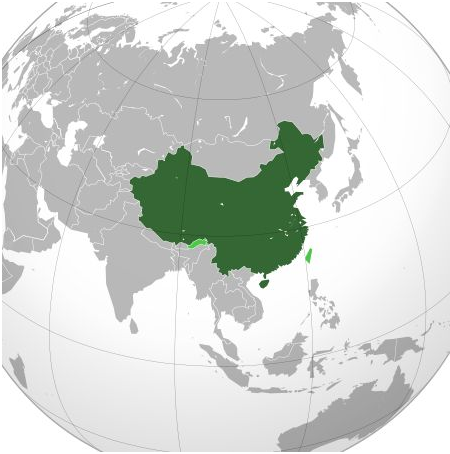Nuclear Weapons 187 - China Unlikely to Exert Influence to Curb North Korean Nuclear Weapons Program
North Korea has been in the news a lot because of the recent nuclear tests. I have blogged a couple of times in the past few weeks about their nuclear ambitions and the pressure on South Korea's government to respond by starting their own nuclear program. Internationally, there is pressure on China to exert influence to slow down or stop N.K. work on nuclear weapons and delivery systems. China has been propping up N.K. for decades and recent shipments of energy, materials, food and other trade goods from China to N.K. has helped the impoverished country to survive. The reasoning of the international community is that if China is so critical to the survival of N.K., then China should be able to strongly influence what N.K. does. However, China has its own reasons for being reluctant to try to force N.K. to curtail its nuclear ambitions.
First, Chinese leaders prize stability. They work hard to maintain stability internally. They are afraid of social turbulence loosening their grip on power. Cutting off critical supplies to N.K. could result in chaos, collapse and anarchy on the Korean Peninsula. At the very least, there would be a flood of desperate refugees fleeing across the border into China. N.K. might actually attack China with its huge standing army. If N.K. sent troops south, S.K. would be forced to respond and the U.S. and Japan might be drawn into the conflict. The Korean war never officially ended and no one wants to see that bloody conflict resume.
Second, China is playing a game of international chess in Southeast Asia. N.K. servers as a "buffer" against the influence of the U.S. and Europe in Asia. A poor and underdeveloped N.K. separates the citizens of eastern China from a thriving S.K. If N.K. fell apart and S.K. took over that territory, then the U.S. and S.K. would be able to station troops and weapons right on the long Chinese border which would be unacceptable to the generals and leaders of China.
Third, China has been rising economically and militarily in the past few decades. There are old rivalries and hatreds between China and many of its neighbors. The recent ascendancy of China has done nothing to quell these negative relationships. N.K. is a close ally of China and this is valued by Chinese leadership. There have been some attempts by N.K. in the past to reach out to the U.S. and other nations. China would prefer to keep its close relationship and control of N.K. destiny intact.
Fourth, South Korea has become an economic powerhouse with membership in the top ten industrial nations. If N.K. fell and S.K. moved in, the desperate population and natural resources of N.K. would fuel S.K. economic expansion. China does not want a booming Korea as a tough competitor right on its eastern border.
Even though China finds itself in an awkward situation with a belligerent N.K. roiling international waters, it is unlikely to exert enough pressure on N.K. to change its behavior in the near future.
China:
